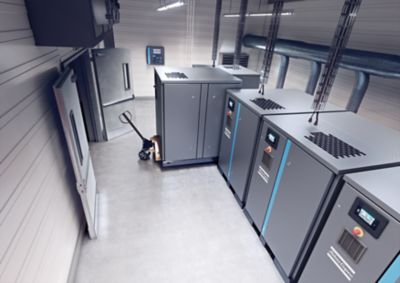Don’t risk production losses. Get the right air quality.
Atlas Copco is offering a simple oil indicator test which can show you in a few minutes whether you are still getting the compressed air quality that you originally specified, or whether there is now unwanted oil circulating in your compressed air system.
Our test kit is a complete solution, containing pressure reducers, push ins, bushings, loctite sealer and the one-use impactor capsules needed to sample your installation. This technology has already been successfully used internationally by pharmaceutical and food and drink manufacturers who require confirmation that sensitive processes are supplied with clean compressed air that is completely free of oil contamination.
The test procedure is simple and fast. A disposable impactor capsule is attached close to the point of use in the network without any interruption to the compressor operation. The air sample flows vertically through multiple nozzles onto an engraved glass baffle plate. The 90° re-direction of the air flow separates any oil aerosols present to attach to the engraved recesses in the baffle and provide a visual indication of their magnitude from 0.1 to >mg/m3. If any oil is present in the airflow, a reading of particulate spot patterns is then compared with scaled images on an instruction sheet for immediate interpretation.
The pictures below indicate the approximate oil aerosol content in the compressed air network (mg/m³) as shown on the impactor capsule.
By testing compressed air quality close to the point of use, results will show a true picture of your compressed air network's workings. Once the test is completed, you are presented with an instant report indicating approximate level of oil contamination in your installation (as depicted by the image above). The report will confirm whether your system is running as originally specified or, if the system has higher levels of oil than expected, give suggestions for achieving this specification. What are you waiting for? Why risk your production and reputation with poor quality compressed air?


